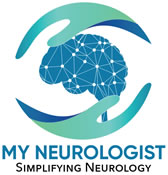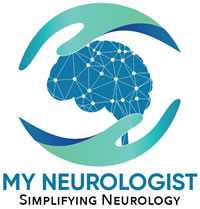What is Progressive Supranuclear Palsy (PSP)?
PSP is a neurological brain disorder with some Parkinson type features. It affects patient’s gait and balance, eye movements, speech, swallowing, and cognition. The term supranuclear implies that the defect or the weakness is not caused by problem in a nerve or its nucleus (collection of nerve cells in the brain), it is higher up in the brainstem section of the brain.
How common is PSP?
It is a rare disorder, about 50-60 cases in a million.
What is the cause of PSP?
Exact cause is unknown. There is accumulation of a protein called tau in certain areas of brain, but it is unclear if that is the cause or the effect of this condition. Specifically, 4-repeat tau type of protein is accumulated in astrocytes.
What exactly is the defect in PSP?
Though exact cause or the trigger is not known, its defining feature is accumulation of tau protein and shrinking of certain areas of brain. Affected areas of the brain are deep, midline, and are parts of the brainstem. While tau protein is a part of normal brain structure, in PSP, there is excessive accumulation of its abnormal form.
Who is at risk for having PSP?
There is some suggestion that exposure to some unknown environmental toxins (processed food, drinking water contamination, etc.) and uncontrolled hypertension may increase the risk for PSP.
Is PSP a hereditary disease?
Most cases of PSP are sporadic, which means that they happen with no family history of this disease. But an abnormal gene has been identified in a small number of PSP patients.
What are symptoms of PSP?
Usually, it presents with problem with balance, walking, or falling. Patient may look like having Parkinson disease, resulting in slowing of movements, tremor (rare and not resting), and abnormal gait. As it progresses, speech, swallowing, and cognition may also be affected. More typical features include peculiar facial expression with widened or angry stare, and limitation of eye movements, especially vertical, and in more severe form, also horizontal. Other features include, emotional lability (crying or laughing), apathy, depression, double vision, difficulty keeping eyes open or decreased blinking, and some patients can have behavioral symptoms.
Is there more than one type of PSP?
Neurologists may describe its multiple types depending upon which part of the brain is affected first or more affected. Patient may have predominately Parkinson type features, or mostly speech or swallowing issues, or significant dementia, based upon the parts of brain more affected.
What diseases may look like PSP?
Many diseases may look like PSP. Some such examples are Alzheimer disease, Whipple disease, Niemann-Pick disease type C, Gaucher disease, prion disease, cerebral vascular disease, cerebellar ataxias, and dementia with Lewy bodies.
What is the life expectancy with PSP?
PSP is a disabling illness and death with it is either from unrelated cause or from one of its complications. Common complications include falling injuries, aspiration pneumonia, or another infection, like from pressure sores.
How is PSP diagnosed?
It is diagnosed by examining the patient. An advanced case of PSP is relatively easy to diagnose, with its typical symptoms and signs, including limited eye movements. It is little tricky to make a diagnosis in early stages, and the neurologist may consider more than one possibility. There is no test to make or confirm the diagnosis, especially in early stages. Brain imaging with MRI or PET scan may reveal selective brainstem shrinking or dysfunction, which in advanced cases may be significant and obvious. Definitive diagnosis can be made after death with brain autopsy but that is seldom done.
How is PSP treated?
There is no specific medicine available to slow down, stop, or reverse the abnormal process in PSP. It is one of the parkinsonian syndromes, which means that it has some symptoms of Parkinson disease. Taking that lead, smaller doses of carbidopa/levodopa or amantadine can be tried. Many other medicines used to treat Parkinson disease, including dopamine agonists and anticholinergics, may not work and may result in more problems. Carbidopa/levodopa may help with balancing, or walking. Medicines may not work and may lose their effect once the disease is more than mild.
Every patient and the family can benefit from a candid discussion about this condition and its repercussions. Dementia is a part of this illness, which may not be obvious in early stages. Main part of this type of dementia is slowed thinking process. I provide following recommendations to the patient and their families:
- Learn about this condition. This article is written for that purpose.
- Make appropriate changes in living situation to minimize falls and injuries. This may include having one floor living space.
- Avoid stairs.
- Remove loose rugs.
- Keep nightlight on.
- Consider a walker for safety.
- Install handicap type features in the house and especially in the bathroom.
- Take sitting showers.
- Have a will, health proxy and financial power of attorney papers done.
- Consider early retirement, especially if cognition is affected.
- Minimize driving. Don’t drive at night, during rush hours, in bad weather, and long-distance.
- Try speech therapy to improve and maintain speech.
- While drinking, do it slowly with smaller sips, in erect sitting or standing position.
- While eating, do it slowly with smaller bites, in erect sitting or standing position. Avoid food that may seem difficult to chew or swallow. A different formulation of the same food item may help to avoid choking. For example, if eating meat, avoid steak or bigger pieces, try minced meat or burger.
- While walking or driving, because of limited eye movements, be aware that you may miss things on your sides and underneath and may bump into them.
- If speech is affected, consider a microphone and a speaker for better communication. In more severe cases, consider electronic keyboard for communication.
- Consider a wheelchair when balance is significantly off, especially for outdoor appointments.
- If living at home, consider getting couple of hours of help during most days to help with cleaning and meals.
- For patients with excessive blinking causing eye closure, treatment with Botox injections can help.
- A different type of eyeglasses lens may help with the limitation of vision.
- Physical therapy can help to improve strength and balance.
- Occupational therapy may help to make appropriate changes in day to day living, especially to avoid falls and injuries.
- If available, consider joining a support group. If not, at least contact Elder Care services for any help.
- When coming for appointments, either bring the list of all medicines you take, or the prescription bottles. Also, write down the questions you may have for the doctor.
Do I need to see a specialist if I have PSP?
PSP is usually diagnosed by a neurologist. Some neurologists specialize in this type of diseases (Movement Disorders). If not satisfied with your neurologist, consider a consultation with a Movement Disorder specialist.
Where can I get more information about PSP?
International Parkinson and Movement Disorder Society


Leave a Reply
Your email is safe with us.
You must be logged in to post a comment.